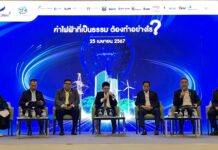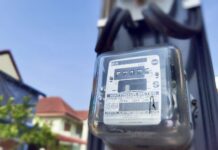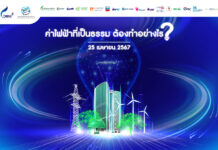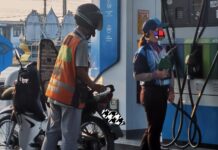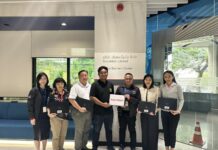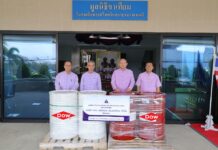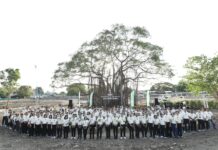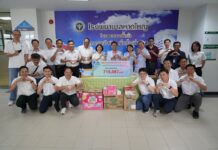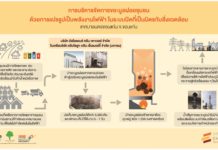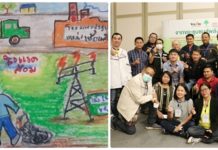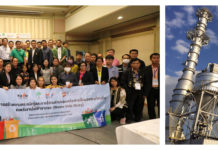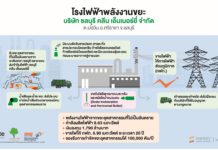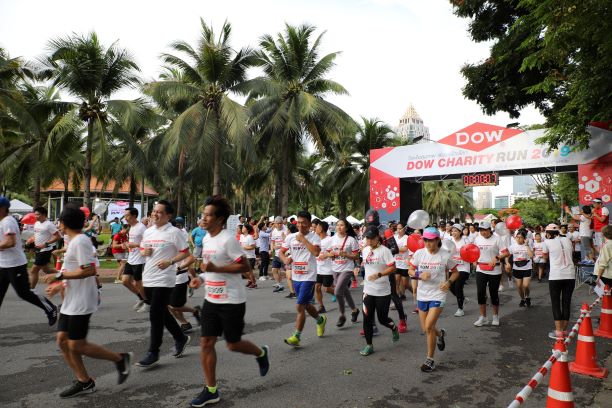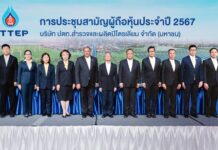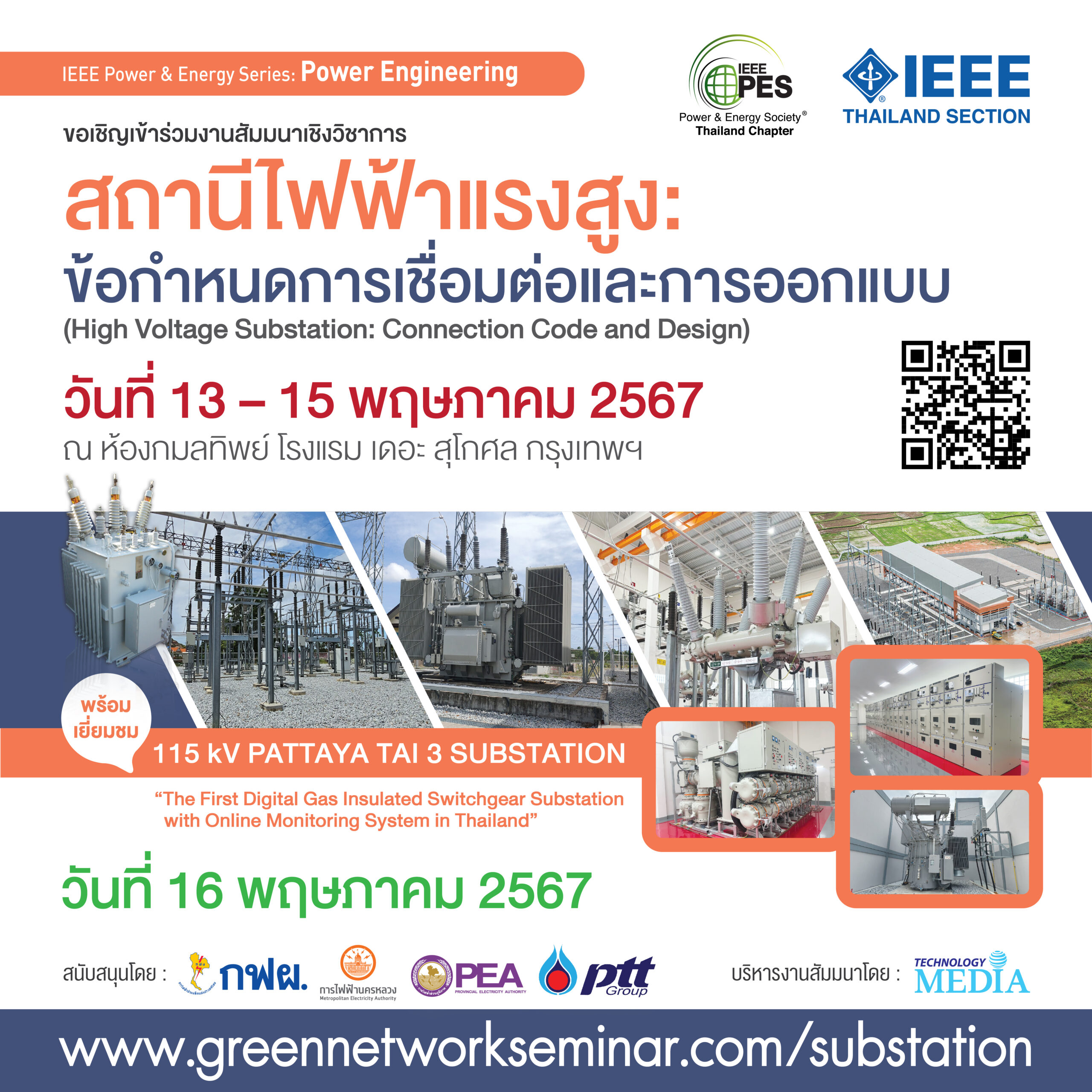More than 900 runs are organized each year in Thailand by public and private organizations, either to raise funds or promote healthy lifestyles. However, what they usually leave behind is a mountain of waste as witnessed by both runners and all those involved. This has inspired a small group of people to come up with an environmental-friendly run that raises public awareness about waste management under the circular economy concept.
The 2019 DOW CHARITY RUN, a 5-km fun run, took place on 16 June 2019 in Lumpini Park in Bangkok. Organized by Dow Thailand Group, it drew more than 1,200 runners and set out to be a zero-waste run model that addresses the growing need for environmental conservation and reduction in plastic and other waste. Aside from exhibitions to promote the circular economy concept, runners were encouraged to reach the venue via public transport to help reduce emissions of greenhouse gases which cause global warming and to bring their own water containers to reduce use of plastic cups.
The run kicked off with the introduction of bins available at the event for organic waste, recyclable waste and other waste, to facilitate sorting at the end of the day and reduce the volume of contaminated waste as a result of poor sorting. Runners were encouraged to reuse reusable items, such as food containers, silicone commemorative coins, which can be used as glass saucers, and lanyards, which can be used as employee or other card holders. The key message was that all these items are reusable.

Mr. Chatchai Luanpolcharoenchai, Dow Thailand President, said that Dow Thailand Group plays a leading role in innovating for human progress and quality of life. Through this charity run, Dow hopes to pass onto the public some guidelines for creatively managing plastic waste. The run featured exhibitions by Dow and our participating partners: Thai Environmental and Community Development Association or Magic Eyes who showcased waste sorting guidelines; and WON Page who educated the public on the preparation of plastic scraps for recycling. WON buys plastic scraps which are turned into recycled plastic resin in order to reduce plastic waste.

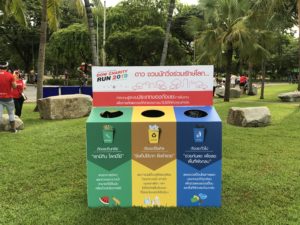
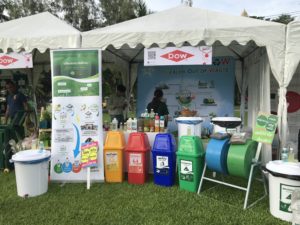
Dow volunteers exhibited information on how to make money from food waste, by turning it into Enzyme Ionic Plasma, cleaning liquid and fertilizer. Their exhibitions included community waste management models which have been implemented in Rayong and Khlong Toei and can be replicated elsewhere; and technology that tackles contaminated waste by mixing it with asphalt to strengthen road surfaces, lower construction costs and add value to plastic waste. As most post-consumer plastics which do not easily degrade go to landfills, Dow is putting efforts into promoting waste segregation. “We and our families can make the first steps at home.”
“This is the first run that embraces the sustainability concept, which is Dow’s emphasis. This project came into being during a conversation between four or five employees. As Dow has a running club, we decided to host a charity run that not only encourages employees to exercise but also helps society address our waste problems. Our goal is that the 2019 DOW CHARITY RUN will serve as a zero-waste run model, to inspire people to change their behavior and do good deeds for society,” said Mr. Chatchai.
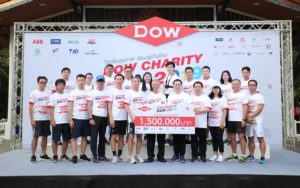
2019 DOW CHARITY RUN welcomed all runners and all proceeds before expenses, worth Bt1.5 million, were donated to the Repair of Cleft Lip, Cleft Palate and other Deformities Project of the Relief and Community Health Bureau of the Thai Red Cross Society. Under the project, poor children in remote areas can have operations and the opportunity to enjoy a normal life.
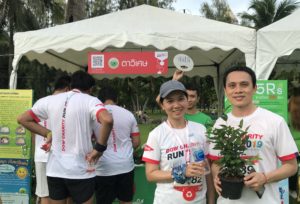

Jariya Suphananthaporn and Theeradej Ratanadej, two of the 2019 DOW CHARITY RUN’s participating runners, felt that Dow is an organization that returns profits to society. The activity presented knowledge about sorting waste and showed how to make Enzyme Ionic Plasma. Notably, unlike many other races, all proceeds before expenses went to the Thai Red Cross Society. The two runners themselves segregate waste in their everyday lives and use cloth bags instead of plastic bags. They carry personal bottles to reduce plastic waste, inspired by shop discounts offered to customers that bring their own bottles. They believe all individuals can lend a hand in helping society. Large corporations should not be left alone to make these changes as the results will be rather limited. Support from all will achieve greater results.
Nat Chanthawong, an employee of Dow Thailand, pointed out that the circular economy concept distinguishes the 2019 DOW CHARITY RUN from other races where plastic glasses and bottles are left behind along the route, particularly at races organized in the provinces. Circular Economy sets out to reduce and recycle waste. Food waste or banana peels from the event will be turned into fertilizer, effectively leaving no waste. Organized to inspire people to exercise, the charity run also encouraged runners to start segregating waste, which should lead to behavioral change and stop them throwing things away without thinking. This can be applied at home or at work. It must be acknowledged that plastic waste in Thailand has become an issue due to lack of awareness about sorting waste sorting at source. All runners were also asked to dump their waste in bins, to avoid harming the environment.
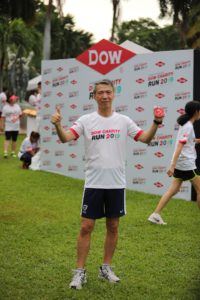
Mr. Chatchai said that plastic waste accounts for approximately 20% of total waste in Thailand, weighing about 2 million tons. Of the total, only 500,000 tons or 25% is recycled while 75% goes into landfills or slips into canals and eventually into the sea. If all plastic waste is recycled and added value via the 3Rs (reduce, reuse and recycle), the general public will be motivated to change their behavior and minimize their resource consumption.
“We hope that the run will ignite public awareness and understanding about the importance of waste management; encourage the public to turn waste into a valuable resource under the Circular Economy concept; prevent waste from spilling into the environment; and practicing waste management in their daily lives. Positive results will follow while economic, environmental and social values will be enhanced” Mr. Chatchai concluded.






